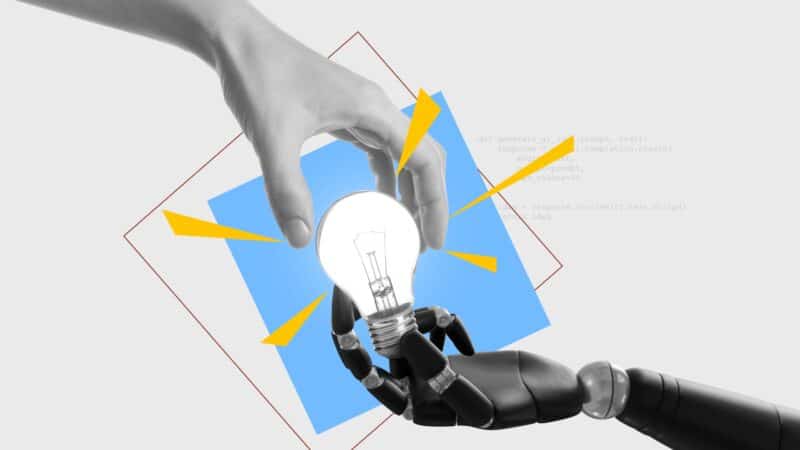
AI is changing how clients view creative work. Even the best human efforts are starting to be questioned — not for quality, but for authenticity. I recently saw this firsthand.
The feedback I was not expecting
Below is recent feedback from a client on some content we created.
“I do have a piece of feedback for them. I’m not sure which AI writing tool they’re using to create these, but they may want to take a second pass… a lot of these pieces of copy are clearly first pass AI generations…”
The problem is that our copywriter didn’t use AI and would be offended by the feedback. He’s an award-winning creative with a big agency background. As you might expect, he’s vehemently opposed to using generative AI.
Where is the feedback coming from? It’s from a company whose marketing department strongly embraces generative AI for content creation. I guess they assume their agency is using it as well.
That will be a significant issue if you are on the agency side. Perhaps it already is, and I’m just now experiencing it. Our copywriter is very talented and has a lot of great experience. As a result, he is not inexpensive.
He warrants the rate he receives, now threatened by clients who will discount the value, assuming a tool is responsible for his output.
As more clients adopt generative AI tools for marketing, questions will arise regarding the outputs and cost of agency services, particularly creative agencies.
In this example, it’s content. However, the same scenario could apply to any creative service: creative concepting, AI image generation, media planning, AI audience segmentation, etc. AI is everywhere.
The real problem behind the perception
The reality of AI tools is that they are handy and efficient. As a result, we face the challenge of protecting the craftsmanship of our creative resources while leveraging the tools’ value.
I’ve always believed that good copy or content is an art. But what happens if no one appreciates the art? What will be its value?
Many creatives use AI tools for ideation, content refinement, editing, etc. However, to date, I’ve not seen any evidence that AI-generated or modified outputs perform any better than what humans have created in the past.
Dig deeper: What AI means for the future of agency-brand partnerships
AI vs. human-generated content
Maybe it’s not a choice of “either-or,” but knowing the advantages and disadvantages of each approach (see below) and when to use them situationally to our advantage.
AI-generated content
| Pro | Con |
| Speed and efficiency: AI can generate content rapidly, saving time and resources.
Scalability: AI can produce large volumes of content quickly, making it suitable for tasks requiring mass output. Cost-effectiveness: AI can reduce the need for extensive human labor, lowering content creation costs. Consistency: AI can maintain a consistent tone and style across multiple pieces of content. Data-driven insights: AI can analyze data to tailor content to specific audiences and preferences. |
Lack of creativity and originality: AI-generated content often lacks the unique perspectives and creative flair of human writers.
Potential for errors and inaccuracies: AI can sometimes produce factual errors or misinterpretations, requiring human editing. Difficulty with nuance and context: AI may struggle to understand the subtle nuances and contextual details that humans can easily grasp. Emotional flatness: AI-generated text often lacks the emotional depth and empathy that human writers can convey. Risk of plagiarism: AI models can sometimes generate content that is very similar to existing material, raising concerns about plagiarism. |
Human-generated content
| Pro | Con |
| Creativity and originality: Human writers can bring fresh ideas, unique perspectives and innovative approaches to content creation.
Nuance and context: Human writers can understand and convey complex ideas and contextual details effectively. Emotional depth and empathy: Human writers can connect with readers on an emotional level, fostering engagement and trust. Critical thinking and problem-solving: Human writers can analyze information, identify problems and develop creative solutions. Ethical considerations: Human writers can ensure that content is accurate, unbiased and responsible. |
Time-intensive: Human-created content can be time-consuming, requiring significant investment in research, writing and editing.
Costly: Human writers can be expensive, especially for specialized or complex content. Potential for bias: Human writers can be influenced by their personal biases and experiences, potentially leading to skewed content. Subjectivity: Human-created content can be subjective, which may not always align with the needs of all audiences. Scalability challenges: Scaling human content creation can be difficult and expensive. |
Dig deeper: Riding the AI tsunami: Harnessing creativity and efficiency in the digital age
The blended future of creativity
After pulling this together, I realized where the client feedback came from in our latest content round. Over the last few months, we have been hand-crafting emails for announcements, follow-up emails to events and other marketing outreach activities.
This most recent round, and what generated the feedback, was a change in our approach. We profiled the personalities of the target audience and found that the most dominant personality type was one that prefers concise, to-the-point, no-nonsense content.
We removed the “emotional depth and empathy” mentioned as a strength of human-generated content. As a result, the content had an “emotional flatness,” making it sound like a machine wrote it.
The blending of machine and man is not going away. The only real question is, will it improve our results?
Dig deeper: The AI-powered marketer’s roadmap to the future of content
The post When clients assume your best work was done by AI appeared first on MarTech.
